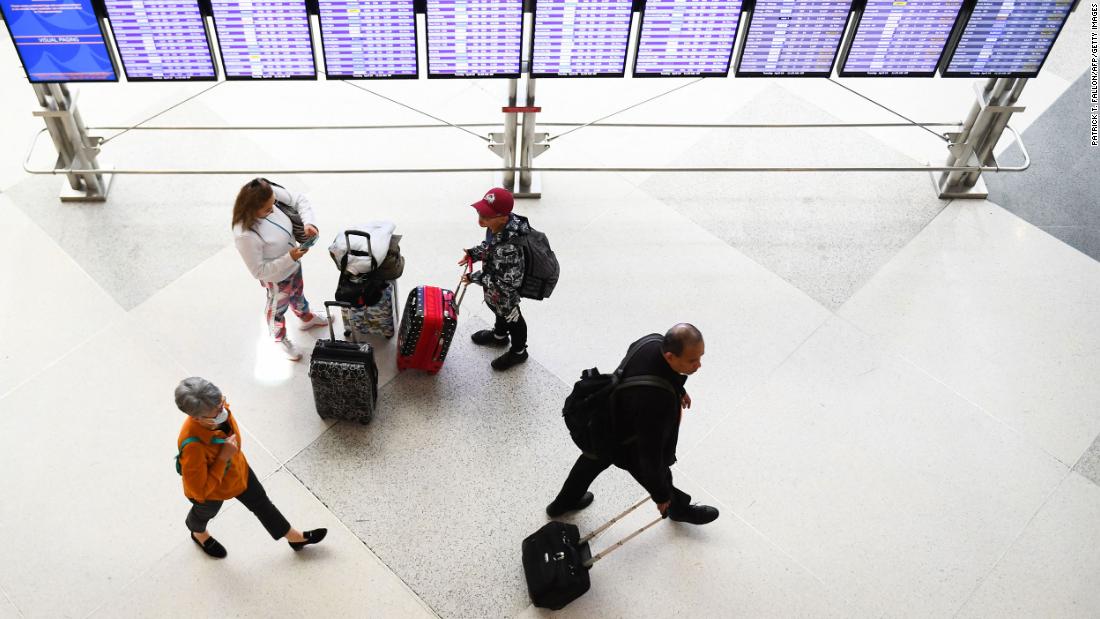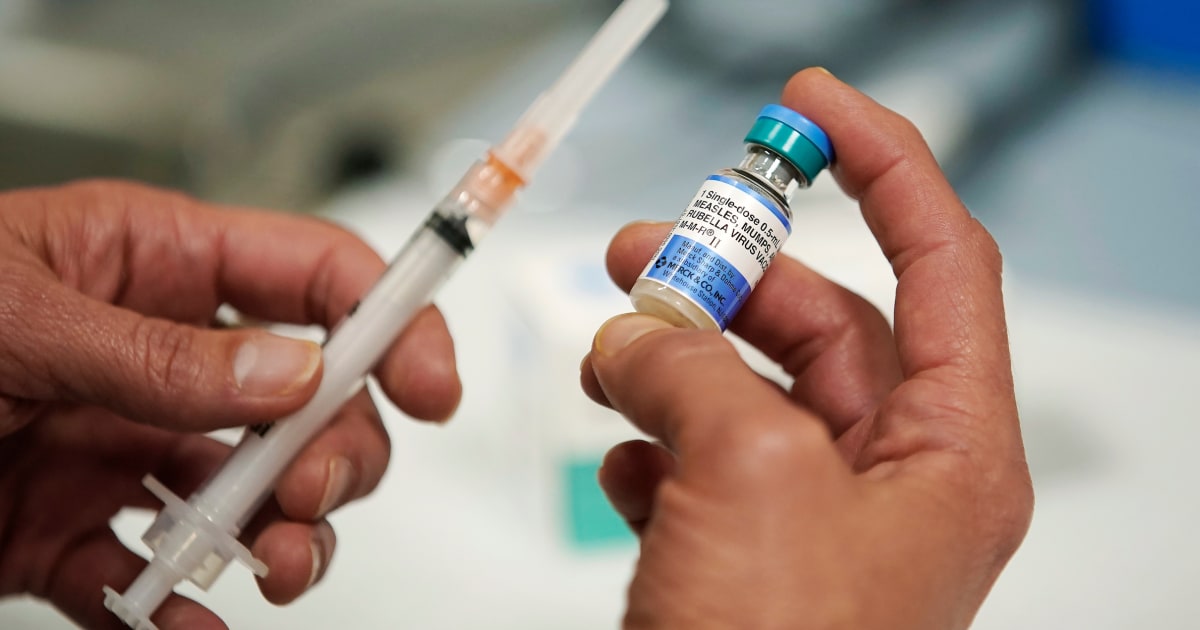Judge overturns mandate of use of masks in transport 1:14
Editor's Note:
KHN (Kaiser Health News) is a national newsroom that produces in-depth journalism on health issues.
Along with Policy Analysis and Polling, KHN is one of the three main operational programs of KFF (Kaiser Family Foundation).
KFF is a nonprofit organization that provides information on health issues to the nation.
(KHN) --
The role the federal government plays in containing future epidemics will depend on the outcome of the appeal of this week's court ruling that struck down the mask mandate for travelers on airlines, trains and trains. public transportation systems in the country.
A federal judge in Florida ruled that the Centers for Disease Control and Prevention (CDC) had overstepped its limits by requiring the use of masks on public transportation, a mandate that legal experts considered within the limits of the agency's mission to prevent the spread of covid-19 throughout the country.
Justice Department says it will appeal ruling to revive mask mandate, if CDC determines necessary
The CDC said late Wednesday that it had asked the Justice Department to appeal the decision, a move the department left up to the agency.
This will take the matter to one of the most conservative appellate courts in the country, the US Court of Appeals for the 11th Circuit.
Public health experts worry that the ruling, unless overturned, will hamper the agency's ability to respond to outbreaks in the future.
"If the CDC can't impose a non-intrusive requirement to wear a mask to prevent a virus from spreading from state to state, then they literally have no power to do anything," said public health law expert Lawrence Gostin, faculty director of the O'Neill Institute for National and Global Health Law at Georgetown University.
advertising
The outcome of the appeal will determine what action the agency can take the next time an outbreak occurs.
And the ongoing debate underscores a lesson in civics: The United States places most of the responsibility for public health measures on states.
The federal role has been more limited, but Congress could clarify it further.
"Congress has the authority to pass a law," said Tony Woodlief, executive vice president of the State Policy Network, a coalition of primarily conservative and libertarian groups.
"If you think the CDC doesn't have enough power, give it more. If you think they have too much, cut it back."
ANALYSIS |
The ruling that annuls the CDC mandate for the use of masks in public transport generates mixed emotions and concerns in the Biden administration
But the case also comes at a time when Congress, and the country, remain deeply divided on almost everything to do with Covid, making it impossible to pass any kind of legislation.
That leaves the courts with the task of interpreting what is already in the law.
The latest case, brought in Florida by a group that opposes medical mandates, centers on a federal law called the Public Health Services Act of 1944. The law gives federal officials the authority to make and enforce regulations. to prevent the spread of communicable diseases.
These may include "inspection, fumigation, disinfection, sanitation" and other measures that in their "judgment may be necessary."
Judge Kathryn Kimball Mizelle, a Trump administration appointee to the US District Court for the Middle District of Florida, ruled Monday that the CDC had exceeded its authority under that law.
A large section of her resolution discusses whether the use of masks meets the definition of a "sanitation" measure.
Federal judges often have to consider whether a federal administrative action meets legal requirements.
Mizelle's ruling, while nodding to the importance of controlling the covid pandemic, states that wearing a mask "doesn't sanitize anything" and, at most, only "catches virus droplets", concluding that "neither' sanitizes' the person wearing the mask or 'sanitizes' the means of transport".
This is not the first time that the authority of the CDC has been questioned during the pandemic.
The agency took a hit last year when the Supreme Court said it had overstepped the mark by imposing an eviction ban during the pandemic.
Jonathon Hauenschild of the conservative political group the American Legislative Exchange Council sees connections between the eviction cases and the mask mandate.
"The CDC used its authority, or at least argued that its authority should extend to much broader public health emergency responses than was actually granted to them," he said.
The recent ruling, Hauenschild argued, simply provides further definition of the powers that the CDC and local jurisdictions have, even during an emergency.
"What this case does is establish a kind of baseline that says, 'We're going to hold public health authorities to their legal grant of authority,'" he said.
"This is an important distinction, because state legislatures or even Congress have weighed the political implications. They've realized there's a balance."
Other legal experts say this case is a bit different because the CDC's authority over interstate travel is clearer than any power it may have over rental housing.
"The transportation mask mandate was a textbook example of the authority of the CDC and its legitimate powers," Gostin said.
Some airlines no longer require masks: see the reaction of passengers 0:50
Meanwhile, the mandate to wear masks on planes, trains and subways has been lifted, and major airlines have wasted no time telling domestic passengers that they can stop wearing them.
The states, not the CDC of the federal government, have the broadest authority over public health efforts to control disease.
Your public health agencies, or elected officials, have a number of authorities, including the ability to require face coverings in schools or businesses.
Governors can issue stay-at-home orders during public health emergencies.
And health departments routinely track communicable disease outbreaks and inspect restaurants for pathogens or pests.
But states have no authority over interstate commercial flights.
Here's what you need to know about the new US rules for wearing masks on flights
"Public health is governed primarily at the local level, but the moment a disease crosses a state line or crosses our national borders, then the federal government plays a role," said Dr. Georges Benjamin, executive director of the Association American Public Health.
The pandemic has called even state authority into question.
Reactions to local mask mandates and other requirements have led more than half of states to scale back the responsibilities of public health officials.
"One day there will be a really scary virus that will make its way to US shores and we will look to the CDC to protect us and what we will find is an agency that is scared to act, nervous and always looking over its shoulder." Gostin said.
He and other public health experts said it might also be time for Congress to review and clarify the agency's authority.
"Traditionally, the CDC has had very little power," said Glen Nowak, co-director of the Center for Health and Risk Communication at the University of Georgia.
He spent more than a decade working in communications at CDC, including during the 2009 H1N1 pandemic.
"Most of what the CDC does is say, 'This is our recommendation, we strongly urge you to follow it,'" he said.
"And then it's up to state and local health departments, or states in general, to figure out how you're going to get high compliance."
But these recommendations hinge on trust in agencies, something that has crumbled during the pandemic.
And, according to Nowak, public health measures at all levels — federal, state and local — have landed in the courts, in part because of misperceptions about the American public's willingness to comply.
"Much of the action was based on assumptions about compliance: that the public would be willing to comply, that they would share the sense of urgency, and that they would make stopping the spread of the virus a high priority," Nowak said.
Benjamin of the American Public Health Association said there is no time to waste.
The reason public health officials need established lines of authority, he says, is because public health emergencies, whether it's the emergence of a new strain of Covid-19 or some future pandemic, require swift action.
"We won't have time to wait for the courts to make a decision," he said.
CDCCovid-19masks









/cloudfront-eu-central-1.images.arcpublishing.com/prisa/4EXOEQQAWNH53ICZAJC5SNVJAE.jpg)